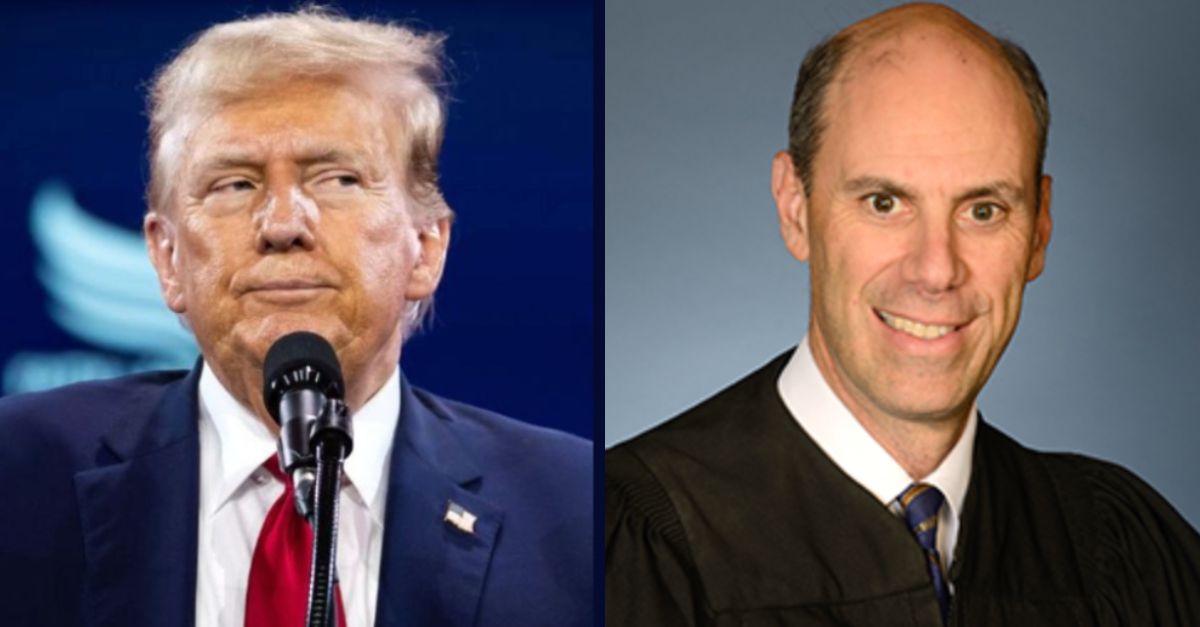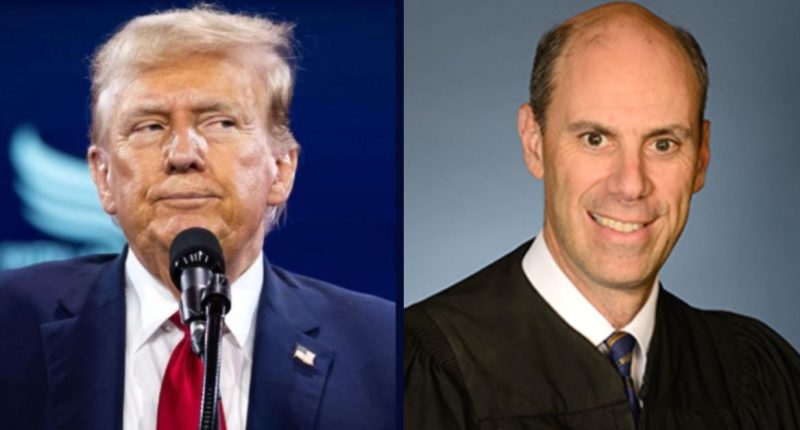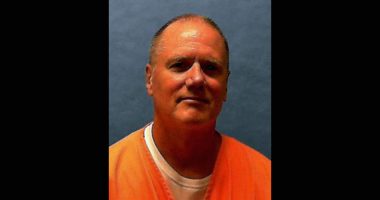
Left: Donald Trump speaks at the annual Road to Majority conference in Washington, DC, in June 2024 (Allison Bailey/NurPhoto via AP). Right: U.S. District Judge James Boasberg (U.S. District Court for the District of Columbia).
The federal judge who previously called out the Trump administration for appearing to willfully flout a court order surrounding the use of an 18th-century wartime authority called the Justice Department’s latest explanation of the government’s conduct “woefully insufficient.” The scathing order marks the latest escalation in the administration’s ongoing clash with the judge over its controversial use of the Alien Enemies Act of 1789 (AEA) to fast-track deportations without due process.
U.S. District Judge James Boasberg on Thursday said the DOJ failed to provide the information he demanded regarding two flights carrying alleged members of a Venezuelan gang to a notorious prison in El Salvador last weekend, in seeming contravention of his court order.
Instead of answering the court’s questions or invoking the state-secrets privilege, Boasberg said the government filed a short declaration from a mid-level immigration official in Texas that simply “repeated the same general information” about the two March 15, flights — mainly, that they had departed U.S. airspace prior to the judge ordering them to return to the country.
Noting that the declaration was filed “shortly after” the court’s deadline, Boasberg’s three-page order said “the Government again evaded its obligations” to provide the court with substantive answers.
The six-paragraph declaration (four of which were spent identifying the official) also stated that cabinet secretaries in the administration were “actively considering” whether to invoke the state-secret privilege, claiming it was a “serious matter” that could not be properly undertaken in just 24 hours.
The judge had already expressed skepticism about the validity of the state-secret privilege, as the flight information was already public and footage of the migrants arriving in El Salvador had been posted to social media by Trump administration officials.
“This is woefully insufficient. To begin, the Government cannot proffer a regional ICE official to attest to Cabinet-level discussions of the state-secrets privilege; indeed, his declaration on that point, not surprisingly, is based solely on his unsubstantiated ‘understand[ing],”” Boasberg wrote. “Although its skepticism concerning the suitability of such privilege expressed in yesterday’s Order remains, the Court at a minimum requires an official with direct involvement to swear that deliberations of the privilege’s invocation are ongoing at the level [the ICE official] attests. It further expects such deliberations to be concluded by March 25, 2025, which only exceedingly good cause may excuse.”
Boasberg went on to order the Justice Department to file another declaration by Friday morning from a person “with direct involvement in the Cabinet-level discussions regarding invocation of the state-secret privilege” and to explain why failing to return the two planes carrying the migrants “did not violate the Court’s Temporary Restraining Order.”
The DOJ subsequently filed a declaration from Deputy Attorney General Todd Blanche confirming that discussions about invoking the state-secret privilege were taking place within the administration.
The case has been a tinderbox for controversy since the Trump administration appeared to disregard Boasberg’s March 15 directive prohibiting the deportation of more than 100 migrants under the AEA. When the Justice Department informed Boasberg that the two planes had already departed for El Salvador, he ordered those flights to turn around and return to the country. However, the administration did not, contending that the planes were outside U.S. airspace.
Contentious exchanges between Boasberg and DOJ attorneys throughout the week led to President Donald Trump calling for the judge’s impeachment from his lifetime appointment to the bench. A House Republican introduced articles of impeachment for Boasberg a short while later.
Trump’s diatribe against Boasberg led to a swift rebuke from Supreme Court Chief Justice John Roberts, who issued a rare public statement saying that “impeachment is not an appropriate response to disagreement concerning a judicial decision.”
The administration’s apparent willingness to spurn a direct order from a federal judge has left many legal scholars wondering if the U.S. is on the brink of a constitutional crisis.
“If anyone is being detained or removed based on the administration’s assertion that it can do so without judicial review or due process,” Jamal Greene, a law professor at Columbia, told The New York Times, “the president is asserting dictatorial power and ‘constitutional crisis’ doesn’t capture the gravity of the situation.”
Love true crime? Sign up for our newsletter, The Law&Crime Docket, to get the latest real-life crime stories delivered right to your inbox.








